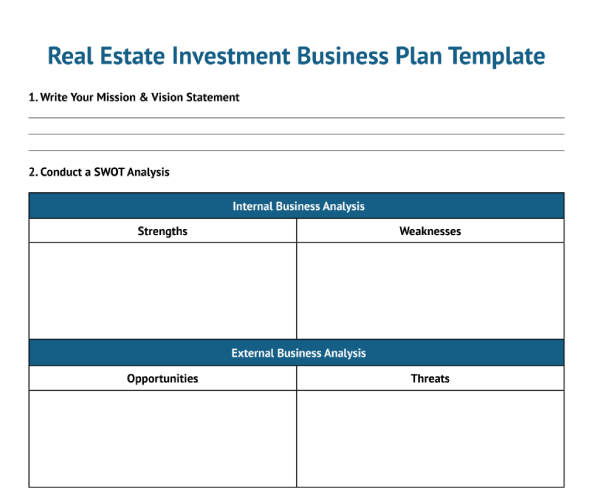Commercial real estate investing companies manage properties for profit. They focus on office buildings, retail spaces, and industrial properties.
Commercial real estate investing companies are pivotal in the property market. They acquire, manage, and lease out commercial properties to generate income. These firms offer opportunities for investors to diversify their portfolios. They handle various types of properties, including office buildings, shopping centers, and warehouses.
Their expertise helps maximize returns while minimizing risks. Investing with these companies can provide steady cash flow and potential appreciation. They also manage property maintenance and tenant relations, ensuring smooth operations. By leveraging market knowledge and experience, they help investors achieve financial goals in commercial real estate.
The Rise Of Commercial Real Estate Investing
Commercial real estate investing has become very popular. Many companies are investing in commercial properties. These properties include office buildings, retail spaces, and warehouses. The rise of commercial real estate investing is driven by several factors. Let’s explore these factors in detail.
Market Trends Driving Interest
Several market trends are making commercial real estate investing attractive. Urbanization is a key trend. More people are moving to cities. This creates a demand for commercial properties. Technological advancements also play a role. Smart buildings are becoming more common. They offer better energy efficiency and security.
Another trend is the growth of e-commerce. Online shopping is increasing. This drives the need for more warehouses. Flexible workspaces are also in demand. Many companies prefer co-working spaces. These spaces offer flexibility and cost savings.
Impact Of Economic Shifts
Economic shifts have a big impact on commercial real estate investing. Interest rates are one important factor. Lower interest rates make borrowing cheaper. This encourages more investments. Inflation is another factor. Property values tend to rise with inflation. This makes real estate a good hedge against inflation.
Government policies also influence the market. Tax incentives can make investing more attractive. Zoning laws can affect where properties can be built. Understanding these economic shifts is crucial for investors.
| Factor | Impact |
|---|---|
| Urbanization | Increased demand for commercial properties |
| Technological Advancements | More smart buildings |
| Growth of E-commerce | Higher need for warehouses |
| Flexible Workspaces | Rising demand for co-working spaces |
| Interest Rates | Cheaper borrowing costs |
| Inflation | Increased property values |
| Government Policies | Tax incentives and zoning laws |
![]()
Credit: www.iconheritagepartners.com
Evaluating Top Commercial Real Estate Companies
Investing in commercial real estate can be lucrative. Choosing the right company is crucial. It ensures your investment grows and remains safe. Here, we will evaluate top commercial real estate companies. Focus on key metrics and trust factors.
Performance Metrics To Consider
Performance metrics are vital in evaluating real estate companies. They help determine the company’s success and reliability. Consider the following metrics:
- Return on Investment (ROI): Measures profitability of your investment.
- Net Operating Income (NOI): Indicates the income generated by the property.
- Occupancy Rate: Shows how much of the property is occupied.
- Capitalization Rate (Cap Rate): Reflects the potential rate of return.
- Debt Service Coverage Ratio (DSCR): Assesses the company’s ability to repay debts.
These metrics provide a clear picture of the company’s performance. They help you make informed decisions.
Reputation And Trust Factors
Reputation and trust are key in real estate investing. A reputable company ensures safety and reliability. Consider these factors:
- Client Reviews: Read reviews from past clients. They provide insights into the company’s performance.
- Industry Awards: Recognitions and awards highlight the company’s excellence.
- Years in Business: Longevity often indicates stability and experience.
- Transparency: Ensure the company is open about its operations and finances.
- Regulatory Compliance: Check if the company complies with industry regulations.
These factors build a company’s reputation and trustworthiness. They are essential for a secure investment.
Diverse Portfolios: A Comparative Analysis
Commercial real estate investing companies often have diverse portfolios. These portfolios include various sectors and regions. This diversity helps in spreading risks and increasing returns. Let’s explore sector-specific investments and geographical spread and risks.
Sector-specific Investments
Investing in different sectors is crucial for real estate companies. Each sector has unique features and risks. Here are some common sectors:
- Office Spaces: These are buildings used for business operations.
- Retail Properties: These include shopping malls and standalone stores.
- Industrial Properties: Warehouses and factories fall under this category.
- Multifamily Housing: These are residential buildings with multiple units.
Sector-specific investments allow companies to balance their portfolios. This balance helps in managing economic downturns in any one sector.
Geographical Spread And Risks
Geographical spread is another key factor. Investing in different regions spreads risks. Here are some benefits of geographical diversity:
- Economic Stability: Different regions have different economic conditions.
- Market Demand: Demand varies from one place to another.
- Regulatory Environment: Laws and regulations differ by region.
Let’s compare two companies with different geographical spreads:
| Company | Regions Covered | Risk Level |
|---|---|---|
| Company A | North America, Europe | Moderate |
| Company B | Asia, South America | High |
Company A invests in economically stable regions. Company B focuses on emerging markets with higher risks. This comparison shows how geographical spread impacts risk levels.
Innovative Approaches In 2023
In 2023, commercial real estate investing companies are adopting new strategies. These innovative approaches focus on technology integration and sustainability. This shift aims to meet modern demands and improve investment outcomes.
Technology Integration
Commercial real estate companies now use advanced technology. This includes AI, IoT, and big data analytics. These tools help in making better investment decisions.
Artificial Intelligence (AI) predicts market trends and property values. Internet of Things (IoT) devices monitor building conditions and energy usage. Big data analytics provides insights into market dynamics and tenant behavior.
- AI: Predicts market trends
- IoT: Monitors building conditions
- Big Data: Offers market insights
These technologies enhance efficiency and reduce costs. They also improve tenant satisfaction and property management.
Sustainable And Green Investments
Sustainability is a key focus in 2023. Companies invest in eco-friendly buildings. These buildings use renewable energy and have green certifications.
Renewable energy sources like solar and wind power are popular. Green certifications include LEED and BREEAM. These certifications ensure buildings meet high environmental standards.
| Investment Type | Benefits |
|---|---|
| Renewable Energy | Reduces carbon footprint |
| Green Certifications | Ensures high environmental standards |
Sustainable investments attract eco-conscious tenants and investors. They also lower operating costs and increase property value.
Financial Health And Growth Prospects
Investing in commercial real estate can be lucrative. Understanding the financial health and growth prospects of commercial real estate investing companies is crucial. This section explores key aspects like revenue streams, profitability, and expansion plans.
Revenue Streams And Profitability
Commercial real estate companies have diverse revenue streams. These include:
- Rental Income
- Property Sales
- Property Management Fees
- Development Fees
These companies earn rental income from leasing properties. Property sales generate significant revenue during market booms. Property management fees add another income layer. Development fees come from building new properties.
Profitability depends on effective cost management. Keeping operational costs low boosts profit margins. High occupancy rates also enhance profitability. Regular maintenance ensures properties remain attractive to tenants. Investing in energy-efficient systems reduces utility costs.
Expansion Plans And Forecasts
Expansion plans are vital for growth. Commercial real estate companies often look to expand in high-demand areas. They focus on cities with growing populations. This ensures a steady demand for commercial spaces.
Future forecasts help investors predict returns. Look at market trends and economic indicators. These factors influence property values and rental demand. Companies with strong expansion plans show promising growth prospects.
| Key Factor | Impact on Growth |
|---|---|
| Urbanization | Increases demand for commercial spaces |
| Economic Growth | Boosts rental income and property values |
| Technological Advancements | Improves property management efficiency |
Companies often use technology to enhance their services. This includes using software for property management. It can also involve smart building systems. These systems improve energy efficiency and tenant satisfaction.
Investing in commercial real estate companies with solid financial health is essential. Look for companies with diverse revenue streams and robust expansion plans. This ensures stable returns and growth potential.
Risks And Rewards In Commercial Real Estate
Commercial real estate investing is a lucrative yet challenging endeavor. It offers significant potential rewards but comes with inherent risks. Understanding these risks and rewards is crucial for any investor.
Analyzing Market Volatility
The real estate market can be unpredictable. Market volatility can impact property values significantly. Investors must analyze market trends and economic factors.
Local economic conditions, interest rates, and supply-demand balance affect market stability. A stable market promises steady returns. Volatile markets can lead to sudden losses.
Investors should conduct thorough research. Use reliable data sources to predict market movements. Staying informed minimizes risks associated with volatility.
Long-term Vs Short-term Gains
Commercial real estate investments can yield both long-term and short-term gains. Understanding the differences is essential for strategy planning.
| Investment Type | Benefits | Risks |
|---|---|---|
| Long-term |
|
|
| Short-term |
|
|
Long-term investments offer stability and gradual growth. They are ideal for risk-averse investors. Short-term investments provide quick profits but are riskier. They suit those willing to take higher risks for higher rewards.
Strategic Partnerships And Networking
Strategic partnerships and networking are the backbone of commercial real estate investing. These connections help companies find new opportunities. They also enable firms to share resources and knowledge, boosting growth and success.
Collaborations Shaping The Market
Collaborations in commercial real estate investing shape the market dynamics. When companies join forces, they share expertise, funds, and market insights. Here are some key ways collaborations impact the industry:
- Resource Sharing: Pooling resources helps tackle larger projects.
- Risk Mitigation: Sharing risks among partners reduces individual exposure.
- Knowledge Exchange: Partners learn from each other’s experiences.
The Role Of Industry Events
Industry events play a crucial role in commercial real estate investing. These events provide platforms for networking and forming strategic partnerships. Attendees can meet potential partners and learn about market trends. Here are some significant benefits of industry events:
| Benefit | Description |
|---|---|
| Networking | Meet key players and build valuable connections. |
| Market Insights | Learn about the latest trends and market shifts. |
| Opportunities | Discover new investment opportunities and partnerships. |
Industry events are essential for staying competitive. They offer unique chances to connect and grow in the commercial real estate market.

Credit: www.amazon.com

Credit: fitsmallbusiness.com
Frequently Asked Questions
What Are Commercial Real Estate Investing Companies?
Commercial real estate investing companies buy, manage, and sell properties for business purposes, aiming to generate profit for investors.
How Do These Companies Generate Profit?
These companies generate profit through property appreciation, rental income, and strategic property management and sales.
Are There Risks In Commercial Real Estate Investing?
Yes, risks include market fluctuations, property devaluation, and tenant vacancies, affecting overall investment returns.
What Should I Look For In An Investing Company?
Look for a solid track record, experienced management, transparent operations, and a diversified portfolio.
How Can I Start Investing In Commercial Real Estate?
Start by researching companies, assessing your financial goals, and consulting with financial advisors or real estate experts.
Conclusion
Choosing the right commercial real estate investing company can significantly boost your portfolio. Research and due diligence are crucial. Partnering with experienced companies ensures better returns and minimized risks. Stay informed and make strategic decisions to achieve long-term success in commercial real estate investing.

